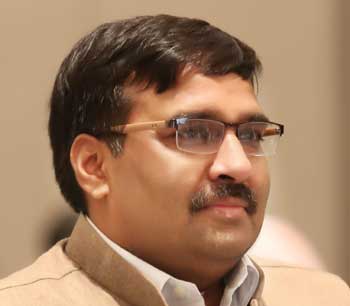Roundtable to discuss Atmanirbhar Bharat
INVC NEWS
Brand India organized a round table discussion on Atma Nirbhar Bharat and the role of CSR in making New India. The event focused on discussing five pillars of self-reliant India including Economy (quantum jumps, not incremental changes), Infrastructure (that represents modern India), System (technology driven), Demography (vibrant demography of the largest democracy) and Demand (full utilization of power of demand and supply).
Speakers from various sector including Dr. Ajay Data, Founder and CEO of Data Ingenious Global; Mr. Ajit Kumar (Founder Khushigram); Mr. Ashish Sachdeva (Founder Green Dream Foundation); Dr KK Upadhyay, Director Centre for Social Review; Mr. Atul Singh, Vice President CSR Emami Ltd; Mr. Praveen Karn, Head CSR Spark Minda Group; Dr. Lopamudra Priyadarshini, General Manager Sustainability & Community Relations Aditya Birla Group and Mr. Chandradutta Panigrahi, Indian Thinker and Futurist shared their views. The discussion was moderated by Mr. Sandeep Simon Behera; renowned author and Director Branding and Promotion Karunya Deemed to be University.
Dr. Ajay Data added two more pillars of self-reliant India i.e. Attitude and Quality. India is rich in technology and software’s but we are habitual of world class technology. We cannot force citizens to use poor Indian products when world class products and services are available. Also We all are using domain name .com, why we can’t use domain name .in .bharat (in Hindi or My Indian language) . We have domain names in all languages but we are habitual to one particular language i.e. English. The vision of our Prime Minister to build a New India: Digital India by breaking the language barrier, using all the latest technologies enabling the masses, will surely help in counting our country as Atmanirbhar Bharat..”
Mr. Ajit Kumar, said, “Quantum leap needs massive disruption of thought, belief, planning and action. This means a Modern India (Bharat) with her own tools and techniques best fit for the land and people driven by a wise mix of so called’ and ‘traditional’ technologies. These have to be based on a full life cycle approach for a truly circular, green and sustainable economy. And all these have to be based on values of share and care to be self-reliant in all sectors and regions. That’s the only to fulfil basic requirements of all Indians based on a high degree of Truth, Trust and Transparency.”
“Atmanirbhar Bharat means making India a bigger and more important player in the global economy. India’s self-reliance would be based on – Economy, Infrastructure, System, Demography and Demand. It is not about being closed to the world, but being self-sustaining and self-generating in this new normal.” Dr. K.K. Upadhyay.
Mr. Praveen Karn, said, “There is only one formula for sustainability i.e. self-dependence.
Speaking on the role of CSR Mr. Atul Singh said, “CSR can play a larger role of a catalyst and enabler in making India Atmanirbhar. Most of the corporates integrate their CSR with the UN Sustainable Development Goals. However, there is a greater need for CSR to be integrated and aligned with the country’s vision for the future to ensure democratization of service delivery and inclusive growth for all.”
Elaborating the benefits of Atmanirbhar Bharat Dr. Lopamudra Priyadarshini said, “Self-reliant India or Atmanirbhar Bharat will prove beneficial in strengthening the society from the grass-root levels, giving the required boost to the economy. Products that generate socio-economic benefits need to focus upon, with promoting artisans and their handicraft making skills. With this, we can boost their work and generate better socio-economic benefits in a holistic manner, strengthening Atma Nirbhar Bharat movement. The equal participation of stakeholders and civilians enable the CSR to work to generate positive and sustainable impact. And for creating transparency and accountability for companies, digitalization is required with a multi-faceted approach where on the internal level, the stakeholders can keep a track of fund spends on different projects via different software integrations. On the external or field level, digitalization and markers can enable the proper execution of projects and post-completion maintenance required for long-term benefits.”
















